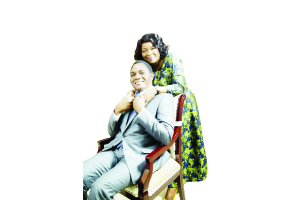By MWANGALA MUNDIA KAPANDULA –
Southern Province is generally inhabited by Tonga speaking people. They are the largest ethnic group in this region and are believed to be the oldest Bantu settlers in Zambia.
In Southern Province, the population of cattle is conspicuously higher than that of people as most Tongas are traditional cattle keepers.
Additionally, the Tongas keep other livestock such as goats, sheep, pigs and chickens.
The Tonga people have always kept cattle and, therefore, have no shortage of protein in their diet.
Besides this, they never waste milk because even when it goes sour, they have traditional methods of making it safe to consume.
From a tender age, young men and boys among the Tongas are groomed and taught how to herd cattle.
The life of a cattle herder is one of the most demanding activities and requires patience, endurance, determination and commitment.
Generally, the movements of cattle herders are seasonal.
They lead a nomadic way of life as they go in search of drinking water and pasture for their animals.
For the people living in Bweengwa area in Chief Hamusonde’s Chiefdom in Monze district, cattle herders used to move long distances onto the Kafue Flats in search of rich pasture and water for their cattle.
As a boy, born in Mooya Village on June 4, 1962, President Hakainde Hichilema was not exempt from the life of a cattle herder as he was groomed to herd his grandfather’s cattle.
Mooya Village is located about 48 kilometres away from the Central Business District (CBD) in Monze.
At a tender age, Mr Hichilema started herding cattle.
Chief Hamusonde traces President Hichilema’s early life from the time he was born and describes him as a blessed child.
According to Chief Hamusonde, young Hakainde developed a strong passion for cattle herding.
He covered long distances in search of rich pasture on the Kafue Flats, especially in the dry season.
The traditional leader, who is also the President’s uncle, said cattle herders would spend nights on the plains and used to erect temporal shelters.
The temporal shelters were grass thatched and measured about two meters wide and a one meter long.
They had a sleep-bay made out of small poles which were tied together and placed on four short poles.
President Hichilema, who is popularly known as HH in the political arena, was described by the traditional leader as brave spirited boy when he was young, who was not frightened by things that terrorised the nights, such as animals of prey that went to the family cattle post to terrorize the cattle.
Besides being a cattle herder, Mr Hichilema was a learner at Mooya Primary School, which is located about a kilometre from his village.
Mooya Primary School Head Teacher Exson Hamiyanda confirmed that the President did his first four years at the school.
President Hichilema later went to NKandela Primary School in Pemba district where he attended Grade Five to Seven and proceeded to Kalomo Secondary School.
He did his tertiary education at the University of Zambia (UNZA) where he studied Economics and then went to England for his Masters Degree.
With his wife Mutinta, who is from the Shepande family, the couple has three children.
Coincidentally Mutinta is also the name for President Hichilema’s late grandmother from his mother’s side.
In his religious life, Mr Hichilema attends the Seventh Day Adventist (SDA) Church where he is currently an elder, though he also attended the Catholic Church at some point in his early life.
His uncle, Maxwell Hichilema, who is also headman Himalambe, says HH was taught different life skills, such as farming, fishing and cattle ranching.
He used to catch fish in Mutama stream located within the village and sell to the community.
From this early life, Mr Hichilema learnt entrepreneurship.
Despite him being educated and being a successful businessman, President Hichilema has not forgotten his cultural and traditional roots.
Mr Hichilema is not only a political leader but also a traditional leader.
He was appointed headman in 2009.
He is currently senior headman in Hakainde Village where he heads 21 villages.
In his absence, Headman Hamweenda Hichilema runs the affairs of the village.
His community participation has been tremendous as both Chief Hamsonde and his uncle Maxwell Hichilema and the community attested.
In 2013, Mr Hichilema constructed a clinic named after him.
Hakainde Rural Health Center was constructed at Mr Hichilema’s cost and the members of the public freely access medical services.
The community appreciates the health facility, which has helped to reduce the long distance people used to cover to access health services at the nearest facility which is seven kilometres away from the village.
In 2018, Mr Hichilema constructed dip tanks for the community.
This has helped to reduce cattle diseases in the area.
President Hichilema is also known to have a heart of giving as he has helped the needy in the community by giving out his animals to enable the recipients use them for ploughing and as a source of milk.
Chief Hamusonde describes Mr Hichilema as a man who has a character of kindness, focus, strong-minded, perseverance and loving.
He attributes President Hichilema’s strong character to cultural values that the village and the community have passed down through generations.
He attributes Mr Hichilema’s resilience in his political career, despite losing presidential elections five times, to what he termed as “the hard long wait” investment that goes with cattle ranching.
The traditional leader said the village setup groomed President Hichilema to become a fighter in life, hence he was able to survive the hardships in prison.
Armed with such attributes, the community in the area is optimistic that the President will spearhead national unity and development owing to his love for humanity. – ZANIS.







